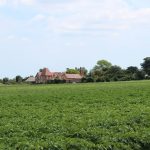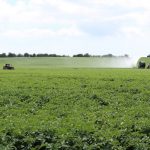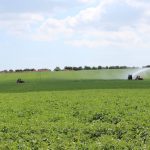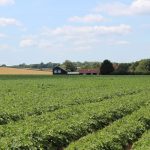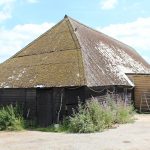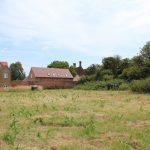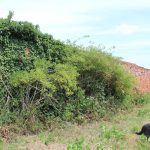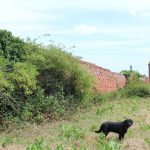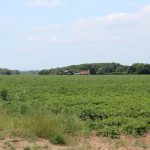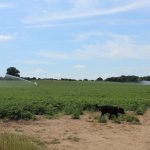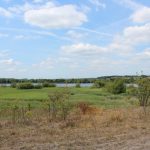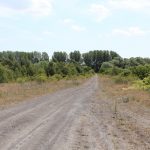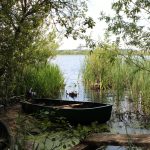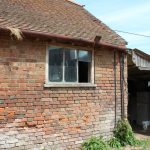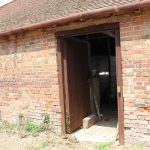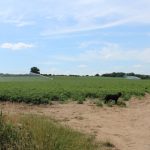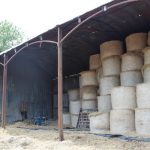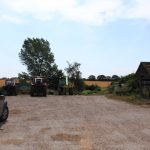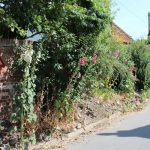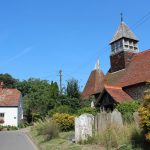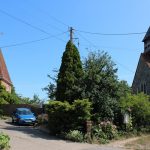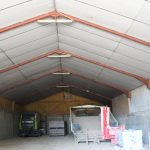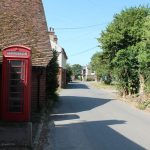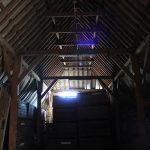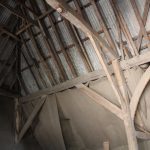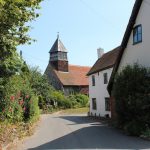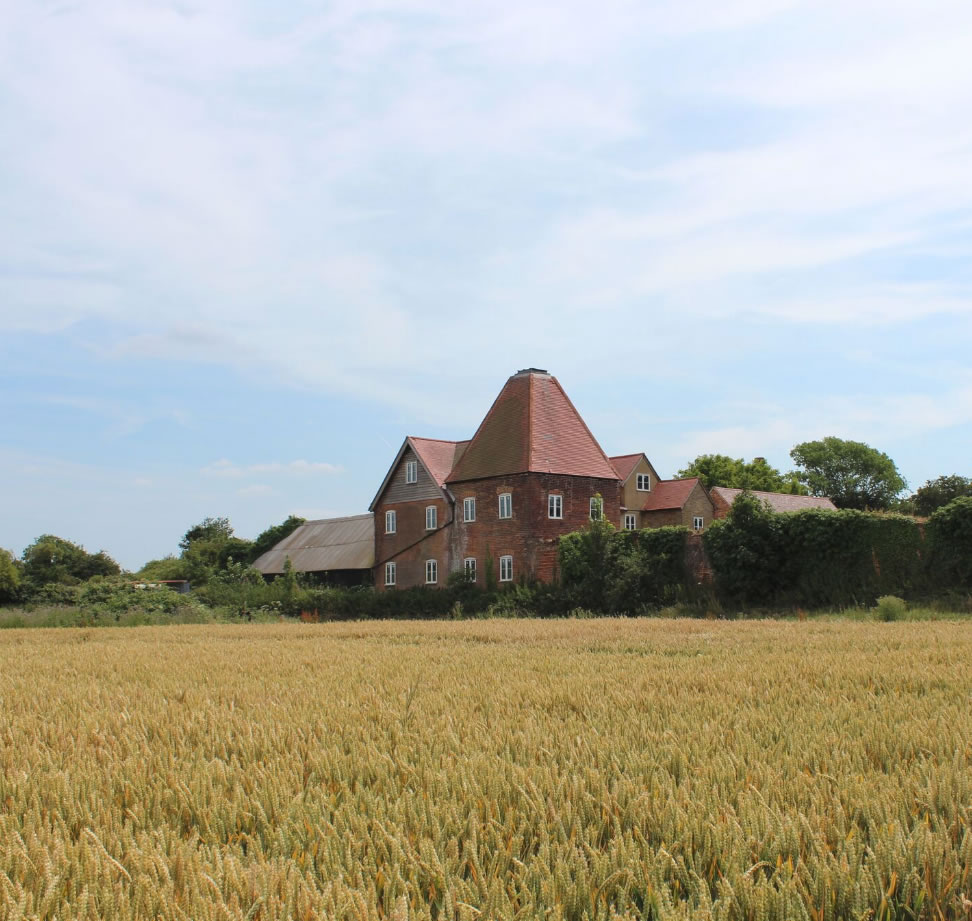
David Birt
About
| Farmer’s name | David Birt |
| Age | – |
| Location | Sawkinge Farm, Stodmarsh |
| Size | 500 acres |
| Type | Mixed |
Interviewed by: Louise Rasmussen
Date: 23 August 2015
Interview Transcript
Louise: Could you just start by telling me a little bit about your farm here, Sawkinge Farm?
David: Yeah. Well…The farm is what we call a mixed farm. We grow potatoes and cereals, which is wheat, barley, oat. And we have beef cattle, we have sort of 140 cows, and they are…all produce a beef calf, so the calf stays with its mother for 6 months in the summer, and then in the winter they come in the sheds and they are then kept inside for another 6 months, and then they go out into the field. Not with their mother because by that time their mother’s got another calf. So then the, those ones will then go out to graze and then come back in the autumn and then they’ll go out for slaughter. So yeah… So it’s three things basically, really: although we do a bit of other things, but mainly potatoes, beef and cereals.
Louise: And has it always been like that?
David: Well, it has really, yeah. And the main reason is that it’s the type of land we got. We’ve got land right up on the top there, which is very dry land, which won’t grow anything in the summer. So it’s down to grass, but then in the autumn the grass will grow and it’ll grow through the winter, so the cows will then go up there in the winter and then in the summer they go out onto the marshes, which is all the lower land, which is all flooded during the winter. So they can’t go out there, so they go out in the summer when it’s dry, come back on the highland in the winter. So that’s the cattle, and the rest of the land it alternates between potatoes, and maize, and field beans. And in between those crops, we will then grow wheat. So it’s sort of wheat every other year, and one of those three crops every other year, and that’s what you call a rotation. So really it’s the type of land we got, and that’s what we do and that’s what we know, and we never really ventured into anything else at the moment.
L: And how old is the farm? Or when did you start?
D: Well, I mean, I don’t know. How old, how far do you wanna go back? I mean if you wanna go back to the church, you know, you’re talking about the 12th century. So I suspect there’s been people farming since then.
L: But your farm, did you take it over from somebody else?
D: Oh, our farm in particular. Yeah, it’s…it’s evolved really. It started, my father and his brothers, and his mother and father, my grand dad, during the Depression, they had to leave their farm in Sussex. And they found the farm down here, where the owners had emigrated to Canada, cause everything was so bad then that nobody could make any money. And they got the farm rent-free for two years, just to live in it, just to make use of the farmhouse and the farm. And then the war came and then farming prospered because we were short of food. And so they then took another farm, this is my father and uncle, and my mother’s family had this farm, so this one was then incorporated, and my brother and myself we just continued and evolved and enlarged the business.
L: So it has expanded since you took over … And where sort of have you expanded into? Or which fields?
D: Well, in Stodmarsh, that’s this, this is Stodmarsh. But we’ve also…we rent a lot of land, which is a lot of the grazing land, which is all down through the marshes, down into Grove. And then well, I know you’re not familiar with the area but there’s the river Stour, which is the one that goes through Canterbury, so it’s that type of land, very low, and then into Preston, and then we got more land in Elmstone and round Wingham. So…But most of that land is summer grazing land, or, if you don’t graze it, you hay it or silage it for winter stock, for the cattle in the winter.
L: And what are the biggest changes you’ve seen in farming over the past …
D: The biggest changes?
L: Yeah.
Well, I think…it’s the size of the machinery, and the capacity it has to combine a crop. Big machines take, you know, they do loads of acres, or with our potato equipment…when I started it was all, potatoes were picked up by hand. And now we got machines, which will lift 200 tons in one day. And that’s just basically about 4 people. I think that is the biggest change really. Tractors…Our tractors are not particularly bigger because you can’t have big tractors going down like, say potato rows, so it needs to be a certain size.
….[pause]
L: You were talking about potatoes and machinery…?
D: Oh yes, ehm…Yeah the size and the capacity of the machines, really, yeah. I mean…we now, there’s four of us; my brother and myself, and my two sons. And we don’t employ anybody anymore. We do use contractors to come and help, or, and we also do a bit of contracting ourselves. But basically, it’s the size of the machine, and there’s another machine, which we had for a number of years, which really has transformed the job. And it’s called a telescopic loader, you might have heard of other people talking about one.
L: No not yet, not that one.
D: And it’s a tractor, and it’s got a boom on the front, you can pick up all sorts of attachments with this thing, and we got something like 11 attachments, so one machine, one attachment, you go in and it picks up palettes, another one would go in and pick up a box of potatoes and tip the potatoes over. Another thing picks up bales of hay, and it just squeezes them and moves them. And this thing’s got 11 attachments on it and that really has transformed farming, yeah. L: Any other things that have changed over the past years?
D: Well, agronomy. I mean there is now…we’re all so much better at growing crops; there’s lots of advice on hand. You do have to pay for it, mind, and you usually pay for it by…the agronomist also sells the spray, so he comes and looks at the field, and say, you got weeds in that field, I’ve got just the spray for that, and you buy my spray and you do that… And we rely on them now, whereas in the past there was very limited spray, and it was a bit of a one size fits all really, but now these sprays are very specific. So that has… And the seeds…they’re not genetically modified, but they’re blooming close to it. Yeah, they are. They’re…I think there’s a fine line between genetic modification and … and…improving a variety or a breed of animal by … breeding and cross breeding with what you want at the end of the day. So that’s improved. And it’s…and you’re paid really on – particularly with the beef – you’re paid on how good the animal is. If it’s, say, if it’s what the butcher wants, he’ll pay top money for it, if it’s not what he wants, then he has a big price difference. So it’s all about growing quality really. And the quality has improved … huge amount over the years.
L: Could you just, because you mentioned that you use contractors from time to time, is that for seasonal work?
D: Yeah.
L: Could you expand a bit on contractors?
D: Yeah, well contractors would … they offer all sorts of services, depending what you want. We have most of our own equipment, but there’s certain equipment, which is very expensive and very specialised. Typically forage harvesting, which is, when we grow the maize, you know what maize is?
L: Hm hm.
D: Yeah. And we use it for the cow in the winter. So it goes in the silage heap, and this machine comes along and it cuts it, draws it in, chops it up into ‘bout 15 mil length, and then blows it into a trailer, and the trailer will then take it into the farm. These machines are hugely expensive. The contractor comes in and he’ll do our maize in one day, and he’ll go along to somebody else, and somebody else, somebody else, so that’s how he makes it pay.
L: And your produce nowadays, where does it go to?
D: Well, the…all the cereals go over to …what was traditionally a farmer cooperative. And as it comes of the combine, you take it over there on your tractor and trailer to Wingham. They will then grade it and sort it so if you have millet wheat, that will go in one bin, feed wheat another, then your barley, and your oats and whatever, and then at the end of the day they give you a read-out, so you got X amount of ton this, this, and this, they will store it, over… condition it, grade it and sell it for you. So that’s where the wheat goes. Where it goes from there, goodness only knows. It might go abroad, they might use it on the mill, they might… it…I don’t know where it goes. The beef, that goes up to one single abattoir in Guildford, and it’s a big abattoir and we would send them up there, like 14 animals at the time. They will go to all sorts of outlets, local butchers, catering, supermarkets, and that’s coming back to the grades that I was talking about earlier with the beef. The best beef will go to the supermarkets, the poorer beef will go to catering, and the very poor beef will go to like hamburgers, MacDonald’s type of thing, yeah. Although there’s nothing wrong with that poorer beef it actually does a better job making hamburgers than what the high quality beef does because the meat holds together. And that’s what they like, and that’s what they want, so…And the potatoes, for the last several years have gone in an artic. lorry, and they go up to Norfolk and they’re made into Kettle’s crisps.
L: And has it changed over the years where your produce has gone to?
D: Yeah. We always used to store our potatoes and then put them in 25-kilo bags, paper bags, and then manually stack them up one ton at the time, and then local merchants would come around and take two ton, five ton, ten ton, on their lorries and sell them locally. But generally now, those type of people very few are far between, there are still some, particularly with the fish and chips trade, they use fresh potatoes, but so much of it now goes up to these big factory complexes, put into small plastic…washed, put into small plastic bags, back on the supermarket shelf. And…So, whereas we used to sell really locally, the potatoes now go right away and then come back again to Canterbury, or wherever.
L: Do you feel that you knew more about where your produce was going back in the time, in contrast to now?
D: Well, we knew more, but I know what’s the easiest. This is…so much easier. Yeah. And we’re dealing with such large quantities now…before we might have 4 or 5 lorries come in a day, little lorries, you know, 4 ton at the time, and now they come in and they take 28 ton at the time. And we can load them in sort of an hour or two, these big lorries. So we can do three or four a day, and it will take, you know, that’s a 100 ton in a day. And so it’s so much easier. Imagine, you got one phone call for each lorry, you know, and you get 5 lorries then you got 5 phone calls, you get…a big lorry comes in, probably not even one phone call, cause he says he’s coming in for 3, you know, and the driver’s are all in contact with each other so they don’t need to talk to you, so it’s…that’s made life a lot easier. Hm hm.
L: In which ways has a typical working day on the farm changed?
D: Typical working day? Changes all year round, this time of the year we got probably 3 major jobs, one is irrigating the potatoes, the other one is haymaking or silage making and the other one is looking after the cow. So we never … like, a Monday morning, we know we gotta move the irrigators, that is usually a two man job. One of my sons knows he’s got to feed the cattle, and then we decide are we gonna cut anymore hay for this week, keep our eye on the weather forecast. But this coming week we got a field of barley up there so we’ll be getting the combine out. So we don’t…you can’t write down and say oh, I’ve gotta do this on Monday and this on Monday, and this on Monday. If it’s chucking it… pouring with rain, you certainly have to change your job. You find the job, perhaps a bit of machinery, maintenance, repairs, there’s always something to repair, or some cattle to move, you can move them in the rain you know. So…and then in the winter, typically, we’re feeding cattle, we would have the potatoes in the store, which we’re continually monitoring, and then there’s usually a bit of field work to do, depending on the time of the year. The wheat has to be planted in the autumn and there’s often a bit of spraying to be done during the course of the winter. But it just depends on the time of the year and what type of job we got, and because we got all these different types of things on we’re always busy, there’s always something to do, yeah.
L: And would you say that the influence of technology…In many ways it’s made your job easier you mentioned earlier, but has it had any negative aspects?
D: It certainly has and … but, it’s also quite difficult to get your head round some of it. I mean like for instance the new potato harvester we got, it’s got a box of controls like that on it, and everything is variable, so every little bit of movement on the machine, which is all driven hydraulically you can adjust; speed it up, slow it down, push the elevators up…Combine is the same, got the read-out screen and the sprayer down there, so it’s actually…you cannot just get somebody in to give you a hand and say get on that machine and drive it. You can’t do it. And it’s got quite technical. And we’re finding that one man really has to just use that one machine. I’ll show you later, do you wanna have a look around later?
L: Yeah, sure. Definitely. It will be easier to see when…
D: Well, that’s right, yeah. I’m sure if you spoke to other farmers you’re starting to get a bit of ideas of what goes on, but… I mean obviously apple farmers and dairy farmers they’re all so different, aren’t they?
L: Yeah it is, yeah. Also, especially on fruit farms they have to still get more labour, especially seasonal labour, whereas if you have cattle and potatoes you don’t need quite as much.
D: We don’t need so much, but we do need it all year round.
… [pause]
L: I was thinking about the EU and their policies and regulations over the years; how have they affected your farm or your work?
D: Yeah, it’s always a job to know really. As you know, farmers get quite a bit of subsidies off the EU. And we certainly wouldn’t survive without it, that’s for sure. But then again, talkin’ of other people around the world, most farmers are subsidised somehow or another, most of them are. So it’s really difficult to know exactly how…how it’s affected us, whether it’s improved our…what should we say, our finances. But we couldn’t do without it at the moment, no. So I really don’t know, and I read all about it in there (pointing to a farmer’s magazine) and…trying to come to a conclusion you know, but…everybody’s got different opinions.
L: Yeah, it’s not an easy topic.
D: No, no it’s been going on for a long time, that’s right, yeah. I think the…it’s quite difficult to compare farms with farms, so we’re…being out here, we’ve got very narrow roads and all quite small fields, it costs us a lot more per unit to produce a crop than what it does say, when you get some of these areas where you have huge fields, huge equipment, very low labour rates and…and so it’s quite difficult to know really. But I think generally, possibly, it’s been a good thing, generally.
L: Just going back to how the farm has changed since you took it over or even before that; how big is the farm now?
D: Yeah, well it’s…we got sort of 500 acres, do you talk acres or hectares?
L: Both are ok.
D: Well, I’m still acres, cause I’m old school. But then…and then it’s increased by another 700 acres during the summer, which is all the summer grazing, which is… So, yeah. So this time of the year we have about 1300 acres, and in the winter it’s more like 5 or 600. I can’t tell you exactly cause I don’t know. And it does vary sometimes, you take on a bit of land and then you lose a bit of land and…so yeah, that’s roughly.
L: Did there used to be more smaller farms in this area?
D: Yeah.
L: How many? Do you know a bit about that?
D: Well, 50 years ago, there was 1…2…yeah, and 3 with us in the village. … And they, and we all got our living of it, off those. Each of us got our living. But now we farm it all, yeah, so we lost all the small farms, and we’re…and that’s the same as some of this other land we’ve taken on. Small farms are gone.
L: And how come they’ve disappeared over the years?
D: Well…I think probably the majority of them, the children didn’t want to take on the farm. Or in one down there, he never had any kids. This one over here had two daughters, another one over at Preston had…his children weren’t interested. Because on a small farm, unless you diversify or you got some other sort of income it’s not really viable, no, it isn’t. No, you gotta have economies of scale now, yeah. And so many farms do diversify, they’ve got all sorts of things where they, where they are living from.
L: Do you find that you’ve had to do that as well over the years?
D: Yes and no. We haven’t diversified as much as some people. We did have property, houses that we bought, but then we sold them to buy more land. We…apart from that we sort of dabbled in things, but not really, no. Farming’s been our core, yeah, our core job.
L: And you were lucky to have sons who wanted to take over?
D: Well that’s right yeah. Well the eldest one went to Liverpool University and studied politics, yeah. Very useful for being a farmer. Then he suddenly realised actually that he thought he’d be a farmer. So he then went to Cirencester, which is a farming University, and was there a year and then came back. And the youngest one, who was never gonna be a farmer said it’s all too much hard work, ended up by coming back as well. So they’re both keen, very keen farmers now.
L: And you took on the farm together with your brother back then?
D: Yeah we…I suppose really I was in partnership with my father and his uncles originally, and as they retired, my brother joined us and then eventually we managed to buy all the old uncles out, and the farmer, and now my sons have joined us. So that’s the way it’s gone.
L: What is the idea of being in the partnership? Now that you’d had that with your father and…
That’s right, yeah, yeah. We’re trading as brothers, so there have been brothers in the business now for yeah, a lot of years.
Audio
Photos and Documents
David Birt Interview Archive – Download .pdf version
